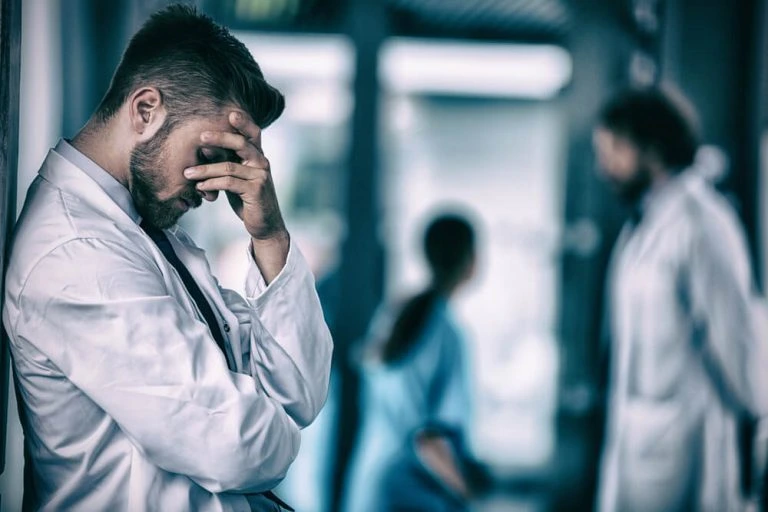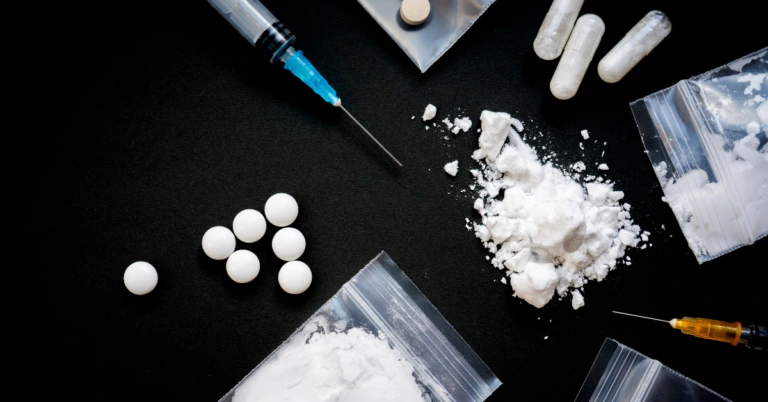Drug Abuse Among Healthcare Professionals an Increasing Concern
Stress–chronic stress in particular–is a major factor for substance abuse, and there’s no doubt that a career in medicine can put individuals under a great deal of stress on a daily basis. Up to 15 percent of healthcare professionals will develop a substance use disorder during their careers, while eight to 10 percent of people in the general population become addicted. Drug abuse among healthcare professionals is an increasing concern, particularly in light of the current opioid epidemic.

Drug abuse among healthcare professionals puts patients at risk, but getting help can put a medical career at stake.
The Most Common Addictions Among Physicians
According to an article in the journal Mayo Clinic Proceedings, a 5-year longitudinal study of 904 physicians in treatment found that alcohol was the primary drug of abuse, accounting for over 50 percent of admissions. Opioids accounted for nearly 36 percent. Researchers have found a higher incidence of physician drug abuse in specialties like emergency medicine, anesthesiology, and psychiatry. This is attributed to factors like the stress of the workplace, easy access to narcotics and other drugs, and–possibly–a selection bias in the type of person who seeks these specialties.
The Consequences of Drug Abuse Among Healthcare Professionals
The medical profession isn’t easy. Physicians work longer hours than ever before, and they’re constantly exposed to trauma. According to a study in the Journal of Addiction Medicine, nearly 70 percent of physicians who abuse prescription medications do so to relieve stress and physical and emotional pain. But the kinds of medications physicians are abusing–including opioids like fentanyl and benzodiazepines like Valium–are highly addictive.
They’re also mind-altering medications that can put patients at grave risk for mistakes at the hands of doctors, nurses, and other medical professionals who abuse them. Currently, there are no safeguards to ensure that the professionals who treat patients aren’t under the influence of drugs. California voters turned down a proposition requiring drug testing for physicians in 2014 for fear that it would be an invasion of doctors’ privacy and may increase the cost of medical care.
As a result, drug abuse among healthcare professionals can go undetected for years. While many physicians and other healthcare professionals with a substance abuse problem know they need help, they’re unlikely to seek it. Peter Grinspoon, M.D. knows firsthand that one reason physicians suffer their addiction in silence is the potential damage to their career if they enter rehab. Grinspoon, one of many doctors addicted to prescription drugs, was charged with three felony counts of fraudulent prescribing and lost his medical license once his addiction came to light.
Help and Compassion are Essential
Grinspoon points out that stigma, the loss of a medical license, and the potential criminal charges a medical professional could face preventing many from getting the help they need. “Though state medical boards, which are made up of doctors for the most part, should be enlightened enough to treat addiction as a disease, they often handle it more like a crime,” he points out in an L.A. Times article. It took him four years to get clean, repair his career, and get his license back, but he lost his marriage and professional reputation in the process.
Because the oversight system defaults to sanctions and punishment, addicted doctors and other healthcare professionals are often leery of seeking help. But addiction, like other chronic diseases, is highly treatable. Grinspoon believes that if state medical boards addressed the problem of doctors addicted to prescription drugs with compassion and carefully monitoring practitioners in recovery instead of revoking or suspending their licenses when an addiction comes to light, more healthcare professionals who need help would seek it, and patients would be safer as a result.
But for now, drug abuse among healthcare professionals remains a serious problem without an easy answer. Grinspoon and others in the industry hope that someday, safeguards will be in place to help prevent physician drug abuse and that addiction will eventually be treated like the disease that it is rather than a moral or professional failing. Only then will medical professionals feel comfortable getting the help they need to recover.
If you or a loved one is struggling with addiction, get help right away. Make a phone call that will connect you to a professional drug treatment center. The call you make may save your life or the life of someone you love. Call us today at (800) 429-7690.








